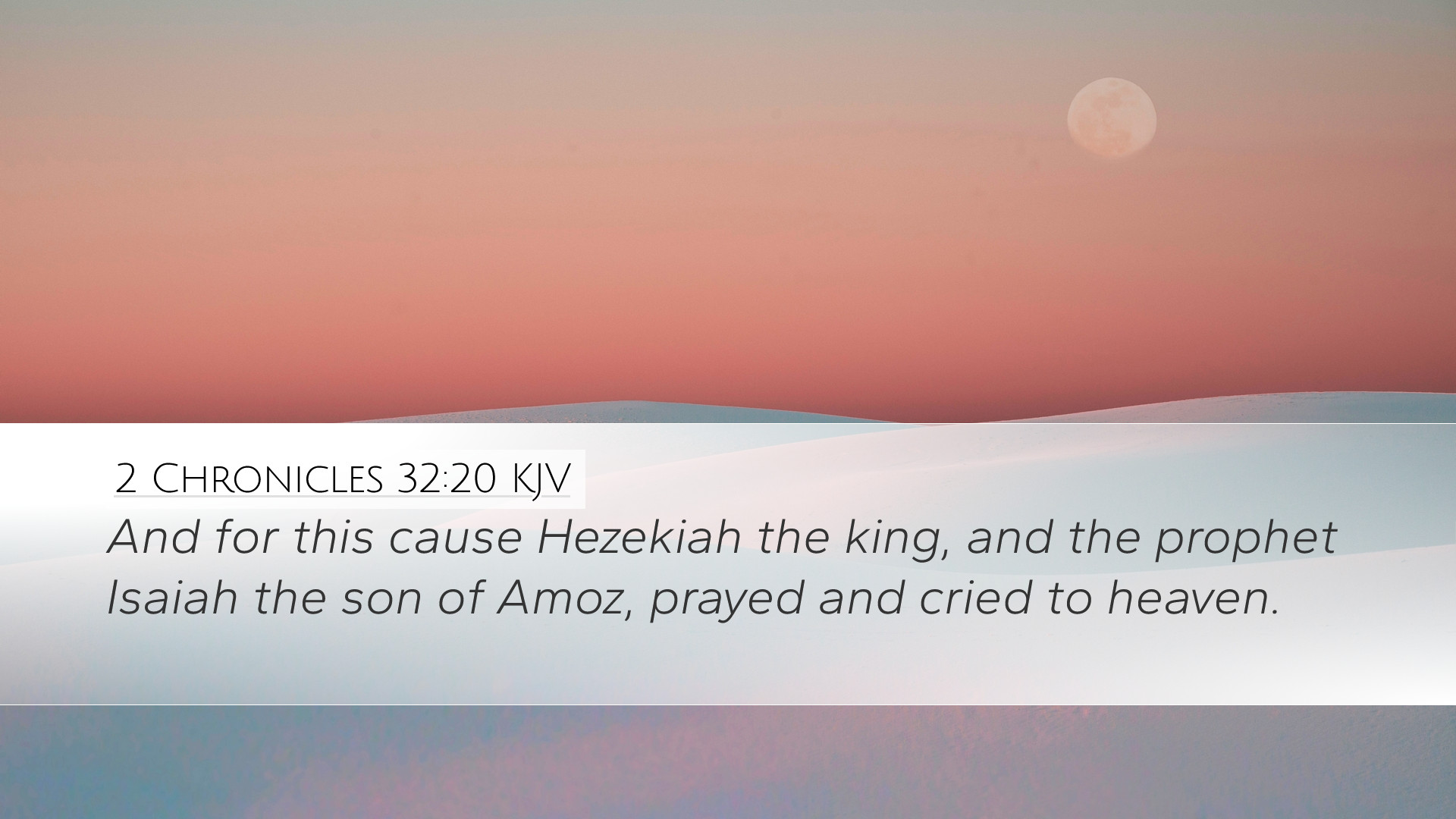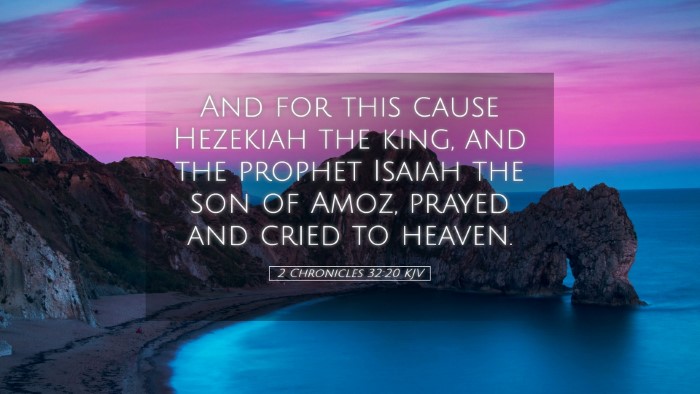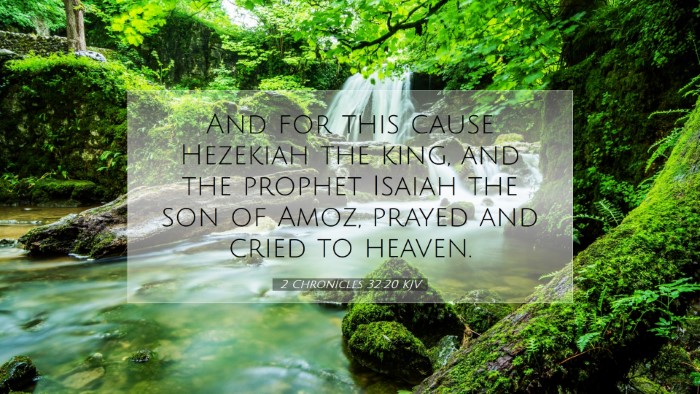Commentary on 2 Chronicles 32:20
Verse Reference: 2 Chronicles 32:20 - "And for this cause Hezekiah the king, and the prophet Isaiah the son of Amoz, prayed and cried to heaven."
Contextual Background
The narrative of 2 Chronicles 32 occurs during a crucial time in the reign of King Hezekiah, known for his religious reforms and efforts to restore the worship of Yahweh in Judah.
This verse highlights a moment of desperation and supplication as Hezekiah faces the impending assault of the Assyrian army under King Sennacherib.
The chronicler emphasizes the collaboration between the king and the prophet Isaiah in their plea to God for intervention.
The Role of Prayer in Crisis
The united prayer of Hezekiah and Isaiah reflects the essential biblical principle of seeking divine assistance in times of distress.
As Matthew Henry notes, “There is no shield against fear but prayer,” suggesting that in the face of overwhelming odds, prayer becomes both a refuge and a source of strength.
Hezekiah's Leadership
Hezekiah’s leadership is characterized not only by political acumen but also by his deep spiritual commitment.
The articulation of prayer reflects a transformational perspective on leadership, where reliance on God supersedes mere military strategy.
Albert Barnes underscores this by affirming that true kingship includes the responsibility to seek divine help and guidance.
Isaiah's Role as a Prophet
Isaiah, the prophet associated with this prayer, represents the voice of God among the people.
His presence alongside the king indicates the necessity of prophetic counsel in governance.
Adam Clarke remarks that Isaiah has not only a duty to proclaim God’s word but also to intercede on behalf of the nation, illustrating the cooperative dynamic between spiritual authority and civil leadership.
The Nature of Their Prayer
The term "cried to heaven" is significant; it conveys an urgent and sincere appeal. Both Hezekiah and Isaiah embody the posture of humility before the Divine.
As Matthew Henry elaborates, the essence of their prayer lies in recognizing their own limitations while appealing to God’s omnipotence.
This stark contrast between human frailty and divine strength assures believers of God’s readiness to hear their pleas.
Lessons on Faith and Dependence
- Faith in Adversity: Hezekiah's action teaches that faith should manifest in active dependence on God, especially in times of adversity.
- Corporate Prayer: The text highlights the power of collective prayer, reminding congregations of the strength found in unified supplication.
- God’s Sovereignty: Their prayer acknowledges God's sovereignty over nations and circumstances, affirming that no power can stand against Him.
Theological Implications
This moment of prayer signifies a theological underpinning that runs throughout the Chronicles: the interplay between human agency and divine providence.
It illustrates that while God is sovereign, He often works through the faith-filled actions of His people.
Albert Barnes states that divine deliverance is intricately related to the fervent prayers of the faithful — a principle echoed in the New Testament as well (James 5:16).
The Outcome of Their Prayer
Although this verse focuses solely on the act of praying, the subsequent narrative reveals God’s faithful response to the king and Isaiah’s pleas.
After their prayer, God intervenes by sending an angel to destroy a significant portion of Sennacherib's army (2 Chronicles 32:21).
This reflects another fundamental principle: that God’s responses to our petitions are not merely results of our efforts but acts of His grace and mercy.
Conclusion
In 2 Chronicles 32:20, the depth of prayer, the nature of leadership, and the importance of prophetic intercession converge, offering profound insights for pastors, theologians, and students of Scripture.
The lesson that emerges is clear: in the face of trials, the greatest weapon we possess is prayer, a direct channel through which we engage with an all-powerful God.
This scripture encourages believers to embrace a posture of prayer as a vital element of spiritual life, mirroring the example set by Hezekiah and Isaiah who turned to heaven in their hour of need.


